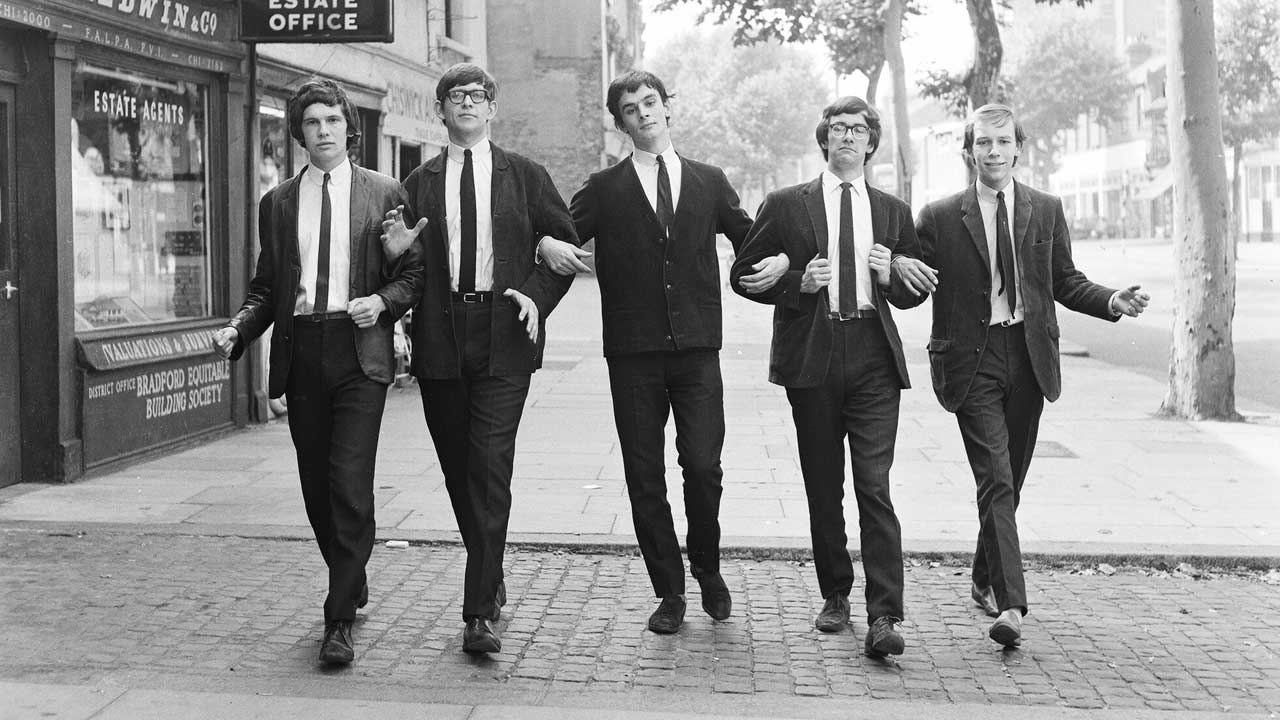Ahh... 1964. It was bliss to be alive in that dawn; but to be a young British band was to be blessed with fortuity on an almost cosmic scale. The Beatles had stormed the US entertainment establishment and all of a sudden there appeared limitless possibilities for those who followed in their wake.
The Zombies, from St Albans, were perhaps the epitome of the British Invasion group, who through a combination of good timing, luck and one all-time classic managed to stake their place in rock history.
The classic in question was a haunting, piano-led song that instantly struck deeper than the Mersey-flavoured pop of the time. It should have set up Rod Argent, Colin Blunstone and co. for a career as long and rewarding as that of contemporaries like The Kinks or the Rolling Stones. Instead, within three years, disillusioned and convinced they were one-hit wonders, The Zombies had split, leaving only a misunderstood psychedelic gem as a parting gift.
It’s strange, then, to hear that She’s Not There was something of an afterthought. In fact the band, all of whom were still teenagers, had to be cajoled into writing any original material of their own. At the end of 1963 they won a talent contest at Watford Town Hall. First prize was a recording contract with Decca, who, still smarting over passing on The Beatles, were determined not to miss out again.
“The idea was that we’d record the Gershwins’ Summertime as our first single,” keyboardist Argent recalls, “but a couple of weeks before we were due to go in our producer Ken Jones said: ‘You should really try and write something for the session’. I had only ever written one song before.”
Retreating to his room for inspiration, keyboardist Argent saw the name of the track No One Told Me on one of his John Lee Hooker albums.
“I really liked the rhythm of that phrase. I started with a minor-to-major chord sequence. At least that’s what I thought it was. I realised later that I’d actually played these chords in a modal sort of way, which gives the beginning of She’s Not There its characteristic flavour.
“Then I had this idea of building up to a climax. I wanted it to be exciting and make use of Colin’s vocal talents. So at the end of the song I had the poor guy singing at the top of his range. Which he cursed me for many times when we had to go on BBC radio at 10 o’clock in the morning.”
She’s Not There picked up favourable reviews – including a thumbs-up from George Harrison on TV pop show Juke Box Jury – and the band watched as the record worked its way up the charts on both sides of the Atlantic. According to Argent, it was the very least they expected.
“I don’t know if it was arrogance so much as inexperience,” he says. “I thought well, you do one of these things, it’s going to come out and be a hit and be a big hit in America. And it was!”
Their UK follow-up, Leave Me Be, flopped completely.
“With the benefit of hindsight, we needed to wait,” suggests Blunstone. “Rod had only just started writing, so we didn’t have a back catalogue of songs to choose from. None of us felt very enthusiastic about Leave Me Be.”
Around the world The Zombies’ profile remained high. But this was an era when The Beatles had raised the bar to impossible heights for British groups. There was also the fact that in Britain, at least, they were regarded as one-hit wonders. “That coloured the way we thought about things,” says Argent.
In 1967, having just come back from an arena tour of the Philippines, the decision was made to throw the towel in. The band’s final album, Odessey And Oracle, limped out posthumously in the following year.
Argent formed his own eponymous outfit, while Blunstone kicked his heels for a time before embarking on a solo career.
While The Zombies went their separate ways, She’s Not There never really went away. Covers by artists as varied as Santana and UK Subs cemented its reputation, and the original has been an influence on several generations of musicians; Roger McGuinn of The Byrds and Billy Joel have both described it as pivotal in their musical development. And it’s hard to believe that another keyboard-led band, The Doors, weren’t taking note of its air of cool detachment.
For The Zombies themselves there was a happy ending. Eventually. Over the years the ill-fated [and famously misspelt] Odessey And Oracle slowly worked its subtle magic, selling steadily, and became a byword for the archetypal lost psyche classic.
The upshot is that the re-formed group stepped on stage this year to perform the album; a fitting testimonial for what many regard as the British Pet Sounds. Naturally, the set-list included the song that made it all possible.
“It’s such a unique song,” says Blunstone. “Even after all these years I still don’t think it sounds like anything else.”
This was first published in Classic Rock issue 118.
